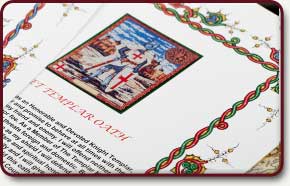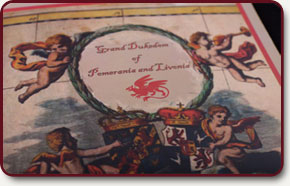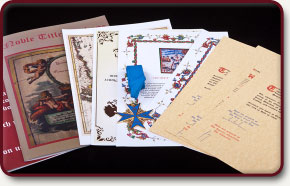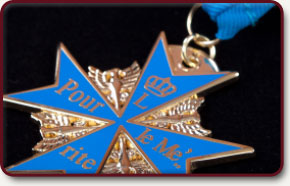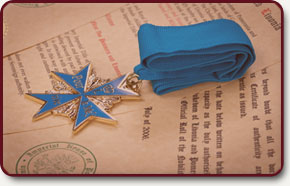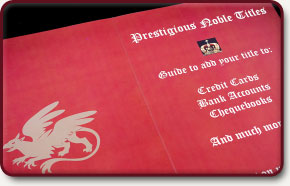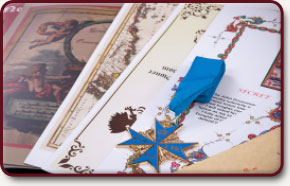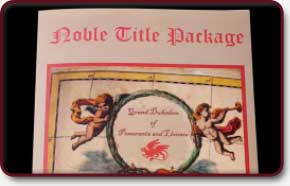
Become a Baron
How you can buy a Baron or Baroness Title today!
How do I become a Baron or Baroness?
A Baron title is one of the most coveted and appreciated titles of the whole world. It is indeed a classic that never goes out of style. It is easy, just follow the instructions on our webpage, and you will achieve the prestigious noble title of Baron. The title of Baron and specially a German Baron is something that commands a very special respect. Our package is perfect, containing state of the art documents and medals of the highest quality.
Click to view what you will recieve with your Baron Title
The German-language title of Freiherr is rendered in English as "Baron", although the title was derived separately in the two languages. Even in German, a Freiherr is often styled and addressed as "Baron" in social circumstances, although not the official title.
In northern Germany, there was also an official but foreign rank of "Baron" (not "Freiherr"), mostly used for Baltic barons, created by the Tsar of Russia, but recognized in Germany. In Austria-Hungary and in the Baltic and Nordic countries, "Freiherr" officially came to be considered of legally equal rank to the title of "Baron". The original distinction from other barons was that a Freiherr's landed property was Allodial instead of a fief.
Barons who received their title from the Holy Roman Emperor are sometimes known as "Barons of the Holy Roman Empire" (Reichsfreiherren), in order to distinguish them from other barons, although the title as such was simply Freiherr. Since dissolution of the Holy Roman Empire in 1806, Reichsfreiherren do not at present belong to the noble hierarchy of the realm. By a decision of the Congress of Vienna in 1815, their titles were nonetheless officially recognized.
After 1806 the now independent German monarchies, such as Bavaria, Württemberg and Lippe could create their own nobility, including Freiherren (although the Elector of Brandenburg had as king of the originally exclusively extraterritorial Prussia even before that date arrogated to himself the prerogative of ennoblement).
Some of the older baronial families began to use Reichsfreiherr in formal contexts to distinguish themselves from the new classes of barons created by monarchs of lesser stature than the Holy Roman Emperors, and this usage is far from obsolete.
On the continent of Europe the title baron, though the same in its origin has come, owing to a variety of causes, to imply a rank and status very different from its connotation in the United Kingdom, and again varies considerably in different countries. Originally baro meant no more than "man," and is so used in the Salic and other "barbarian" laws; e.g. Si quis mortaudit barum vel feminam, &c. (Lex Aleman. tit. 76).
In this way, too, it was long preserved in the sense of "husband," as in the Assize of Jerusalem (MSS. cap. 98): Si l'on appelle aucune chose femme qui aura baron, et il la veut deffendre, il la peut deffendre de son cors. Gradually the word seems to have come to mean a "strong or powerful man," and thus generally "a magnate."
Click to view what you will recieve with your Baron Title
Finally, in France in the 12th century the general expression barones was introduced in a restricted sense, as applied properly to all lords possessing an important fief, subject to the rule of primogeniture and thus not liable to be divided up, and held of one overlord alone. Sometimes it included ecclesiastical lordships of the first rank. In the 13th century the Register of King Philip Augustus places the barones regis Francie next to the dukes and counts holding in chief, the title being limited to vassals of the second rank.
Towards the end of the century the title had come to mean that its bearer held his principal fief direct from the crown, and was therefore more important than that of count, since many counts were only mediate vassals. Thus the kings in granting a duchy or countship as an apanage to their brothers or sons used the phrase in comitatum et baroniam.
From this period, however, the title tends to sink in comparative importance. When, in the 14th century, the feudal hierarchy was completed and stereotyped, the barons are ranked not only below counts, but below viscounts, though in power and possessions many barons were superior to many counts.
In any case, until the 17th century, the title of baron could only be borne by the holder of a territorial barony; and it was Louis XIV. who first cheapened the title in France by creating numerous barons by royal letters. This entire dissociation of the title from the idea of feudal rights and obligations was completed by Napoleon's decree of March 1, 1808, reviving the ancient titles. By this instrument the title of baron was to be borne ex officio by a number of high officials, e.g. ministers, senators, councillors of state, archbishops and bishops.
It was given to the 37 mayors who attended the coronation, and could be claimed by any mayor who had served to the emperor's satisfaction for ten years, and by any member of an electoral college who had attended three sessions. The title was made to descend in order of primogeniture to legitimate or adopted sons and to the nephews of bishops, the sole condition being that proof must be presented of an actual income of 15,000 fr., of which one-third should descend with the title.
The creation of barons was continued by Louis XVIII., Charles X. and Louis Philippe, and, suspended at the revolution of 1848, was revived again on a generous scale by Napoleon III. The tolerant attitude of the Third Republic towards titles, which it does not officially recognize, has increased the confusion by facilitating the assumption of the title on very slender grounds of right.
Click to view what you will recieve with your Baron Title
The result has been that in France the title of Baron, unless borne by the recognized representative of a historic name, not only involves no political status, but confers also but very slight social distinction.
The same is true, mutatis mutandis, of most other European countries, and notably of Italy. In Austria and Germany the case is somewhat different. Though in Latin documents of the middle ages the term barones for liberi domini was used, it was not until the 17th century that the word Baron, perhaps under the influence of the court of Versailles, began to be used as the equivalent of the old German Freiherr, or free lord of the Empire.
The style Freiherr (liber dominus) implied originally a dynastic status, and many Freiherren held countships without taking the title of count. When the more important of them styled themselves counts, the Freiherren sank into an inferior class of nobility.
The practice of conferring the title Freiherr by imperial letters was begun in the 16th century by Charles V., was assumed on the ground of special imperial concessions by many of the princes of the Empire, and is now exercised by all the German sovereigns.
Though the practice of all the children taking the title of their father has tended to make that of Baron comparatively very common, and has dissociated it from all idea of territorial possession, it still implies considerable social status and privilege in countries where a sharp line is drawn between the caste of "nobles" and the common herd, whom no wealth or intellectual eminence can place on the same social level with the poorest Adeliger. In Japan the title baron (Dan) is the lowest of the five titles of nobility introduced in 1885, on the European model.
It was given to the least important class of territorial nobles, but is also bestowed as a title of honour without reference to territorial possession.
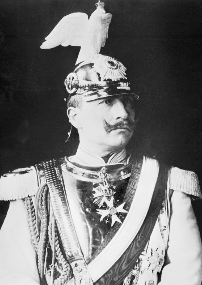
There have been many famous Barons like Manfred von Richtofen, the Red Baron, the most famous combat pilot of all times, or the legendary Baron Munchausen, both subject of several Hollywood movies.
To become a German Baron is something that has a special touch, and an even more special kind of magic.
Also, the good thing about becoming a Baron or Baroness is that it gives you a distinctive quality and glamour that makes you different.
Who doesn’t remember the red plane of Baron Manfred von Richtofen?

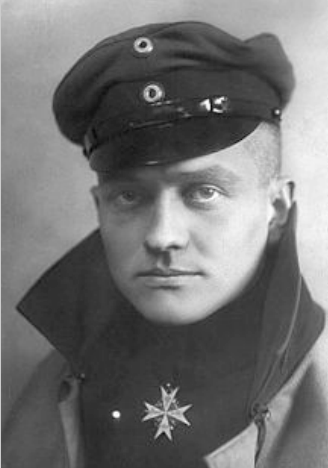
German Barons lived in huge castles, flied combat planes, wore neck medals very similar to the ones we give you, and enjoyed a very nice lifestyle.
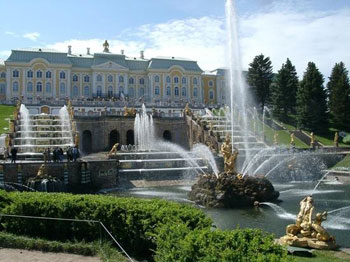
We have made this process simple and easy for you. You only must purchase one of our titles and you will be able to choose any title of nobility from Lord or lady to Baron or Baroness.
Process to buy a Baron Title:
- You choose whether you want a single title or a pair of titles.
- You buy the package through PayPal. You must know that you do not need to have a PayPal account, as PayPal accepts all major credit cards.
- After you have paid you will see a link (on the PayPal confirmation page) to return to our site where you will complete a form with the Title holder's details and choose the title or titles you want.
Later, we will confirm the order in a maximum of 24 hours, and we will deliver to you in a few days.
Our titles are truly wonderful, come with medals, letters patents, historical maps, ownership certificates, a guide to use your titles and also a Master Title Deed to change your name if you so wish, and a guide about how to add your title to credit cards, check books, etc.
All the titles are inheritable, so if you want to start your own dynasty, this is the best way to do it. These are effective, real, legal and inheritable titles for you to enjoy.
All the titles have the same price, 199€, plus 20€ for packing, postage and delivery expenses. We ship worldwide. For 299€ you can buy a pair of titles, the two any titles you most like, at that discounted price.
Single Royal and Noble Title and Royal Medal is EUR €199
Pair of Royal & Noble Titles & Pair of Royal Medals is EUR €299
Postage & Packaging is EUR €20
PayPal is our exclusive and official payment method. Buy now using your Credit/Debit Card/PayPal Account
German Barons always enjoyed noble sports like falconry.

